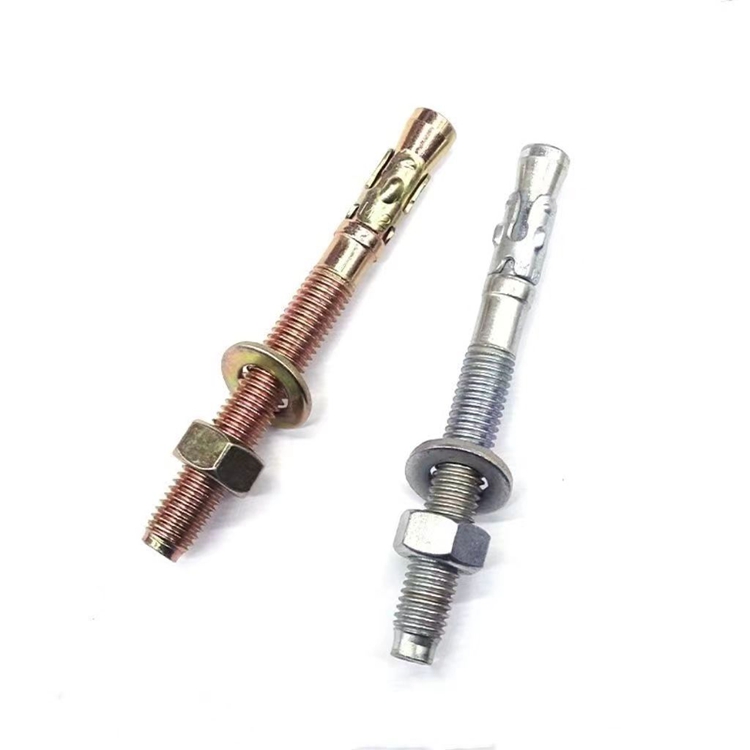High-Performance Tug Nuts for Enhanced Durability and Reliability in Heavy-Duty Applications
Dec . 11, 2024 00:44 Back to list
High-Performance Tug Nuts for Enhanced Durability and Reliability in Heavy-Duty Applications
The Importance of High-Quality Tug Nuts in Marine Operations
In the world of marine operations, the importance of reliable and durable equipment cannot be overstated. Among the many components that play a critical role in ensuring efficiency and safety at sea, tug nuts stand out as essential elements for towing and mooring activities. High-quality tug nuts are crucial for various reasons, from operational effectiveness to maintaining safety standards on marine vessels.
Understanding Tug Nuts
Tug nuts, often referred to as mooring nuts or towing nuts, are specialized fasteners used to secure ropes and cables that connect tugboats to the vessels they are towing. These nuts ensure a robust connection, allowing tugboats to exert sufficient force while maneuvering larger ships. With the right tug nut, operators can trust that their equipment will perform under extreme conditions, fulfilling the demanding requirements of marine towing.
Materials and Manufacturing
The manufacturing of tug nuts involves selecting high-grade materials that can withstand saltwater corrosion, heavy loads, and harsh environmental conditions. Stainless steel, aluminum, and specialized alloys are commonly used to produce high-quality tug nuts. The manufacturing process must adhere to stringent quality control measures to ensure that each nut meets rigorous industry standards. Advanced machining techniques, such as CNC (Computer Numerical Control) machining, allow for precise dimensions and enhanced strength, which are essential characteristics of high-quality tug nuts.
Why Quality Matters
1. Safety The primary concern in maritime operations is the safety of the crew, the vessel, and the cargo. A malfunction or failure of a tug nut can lead to catastrophic consequences, such as vessel collisions or cargo losses. High-quality tug nuts are less likely to fail under stress, significantly reducing the risk of accidents.
high quality tug nuts

2. Operational Efficiency Marine operations often work on tight schedules. The reliability of equipment, including tug nuts, plays a crucial role in maintaining operational efficiency. High-quality nuts allow for smoother operations without frequent breakdowns or the need for replacements, saving time and money.
3. Cost-effectiveness While high-quality tug nuts may come with a higher upfront cost, their durability translates into long-term savings. Cheaper, lower-quality products may need to be replaced more frequently due to wear and tear, which can add up significantly over time. Investing in high-quality tug nuts ultimately pays off in reduced maintenance costs and increased reliability.
4. Enhanced Performance Quality tug nuts contribute to the overall performance of marine operations. They ensure that tugboats maintain optimal control when maneuvering larger vessels, especially in challenging maritime environments. This enhanced performance is vital for the successful completion of towing assignments.
Industry Standards and Certifications
To ensure the reliability and quality of tug nuts, various industry standards and certifications have been established. Organizations like the American Bureau of Shipping (ABS) and the International Maritime Organization (IMO) provide guidelines and regulations that manufacturing processes must comply with. Tug nuts that meet these standards are tested for strength, corrosion resistance, and overall performance, ensuring that they are fit for the demanding marine environment.
Conclusion
In summary, high-quality tug nuts are indispensable in the marine industry. Their critical role in ensuring the safety and efficiency of tugging and mooring operations cannot be overlooked. By investing in top-grade tug nuts made from high-quality materials and manufactured to meet stringent industry standards, operators can ensure that their marine operations run smoothly and safely. As the maritime industry continues to evolve, the demand for robust, reliable equipment will only increase, making high-quality tug nuts a cornerstone of effective marine operations. Whether you are a tugboat operator or a vessel owner, prioritizing quality in your equipment choices is essential for success in the challenging marine landscape.
Latest news
-
High-Quality Panel Stud Bolt Reliable Panel Stud Bolt Factory & Suppliers
NewsJul.08,2025
-
High-Precision Fine Thread Locknuts Manufacturer & Supplier Custom Solutions
NewsJul.08,2025
-
PH Imperial Stud Bolt – High Strength Fasteners from Leading Supplier & Factory
NewsJul.07,2025
-
High-Quality Allen Wrench Bolts Leading Factory, Company & Suppliers
NewsJul.07,2025
-
Wholesale Ball Stud Bolt - High Quality Supplier & Factory Price Reliable Wholesale Ball Stud Bolt Company
NewsJul.06,2025
-
High-Strength Alloy Bolts Manufacturer & Supplier Quality Alloy Fasteners Factory
NewsJul.06,2025
